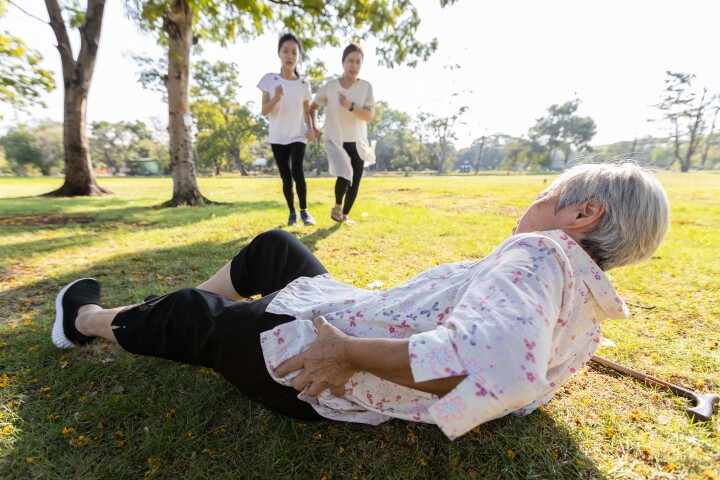Exercise
-
A study found that interrupting prolonged sitting with intermittent half-squats improved blood flow to the brain and, with it, cognitive functioning and concentration. This simple exercise could be done at work or home to provide a brain boost.
-
While it's known that regular walking can help you ward off diabetes, a new study attempts to quantify the speed that maximizes the exercise's benefits. It turns out a little extra pep may go a long way toward cutting your risk of the disease.
-
Runners have treadmills for stationary indoor training, while cyclists have rollers and rowers have rowing machines, but … what is there for wheelchair users? Well, it turns out that they can utilize a li'l something called the Wheely-X.
-
For the first time, scientists have found how our internal body clocks that govern the brain and skeletal system sync up, and upsetting this balance might contribute to injury and accelerate age-related bone and joint decline and disease.
-
While its movements are slow and gentle, Tai Chi is actually a martial art. Now, a study shows that it can not only help people learn movements grounded in self defense, but it can also help them fight the symptoms of Parkinson's Disease.
-
Researchers have created a magnet-containing 'workout mat' that simulates the mechanical forces exerted on muscle cells during exercise. It may assist in testing treatments for people with muscle injuries and neuromuscular diseases.
-
A new study has found that during exercise, the vagus nerve, essential to the body’s ‘rest and digest’ response, has a more important role in heart function than we thought. The findings could help treat diseases like heart failure.
-
As a new age of weight-loss therapeutics dawns, scientists are one step closer to a drug that can coax muscles into behaving as if they’ve just been put through a workout. The benefits range from weight loss to treating diabetes and heart conditions.
-
More than 300,000 Americans aged 65 and older are hospitalized for hip fractures each year. But researchers have found that even tiny lifestyle changes can boost bone strength to a level that greatly reduces the incidence of these serious fractures.
-
Researchers have discovered that platelets, usually involved in blood clotting, have an unexpected ability: they produce a biochemical that has been found to rejuvenate the brains of aged mice, similar to the way physical exercise does.
-
While most people attempting to lose weight will know that there is an optimal ‘zone’ in which fat metabolizes best, based on heart rate and age. Researchers have now found that for many people this is actually an inaccurate formula to be using.
-
Researchers have undertaken a worldwide meta-analysis to look at the minimum number of steps needed to reduce the risk of dying and found that it takes far fewer steps than we first thought to reap the health benefits of walking.
Load More











